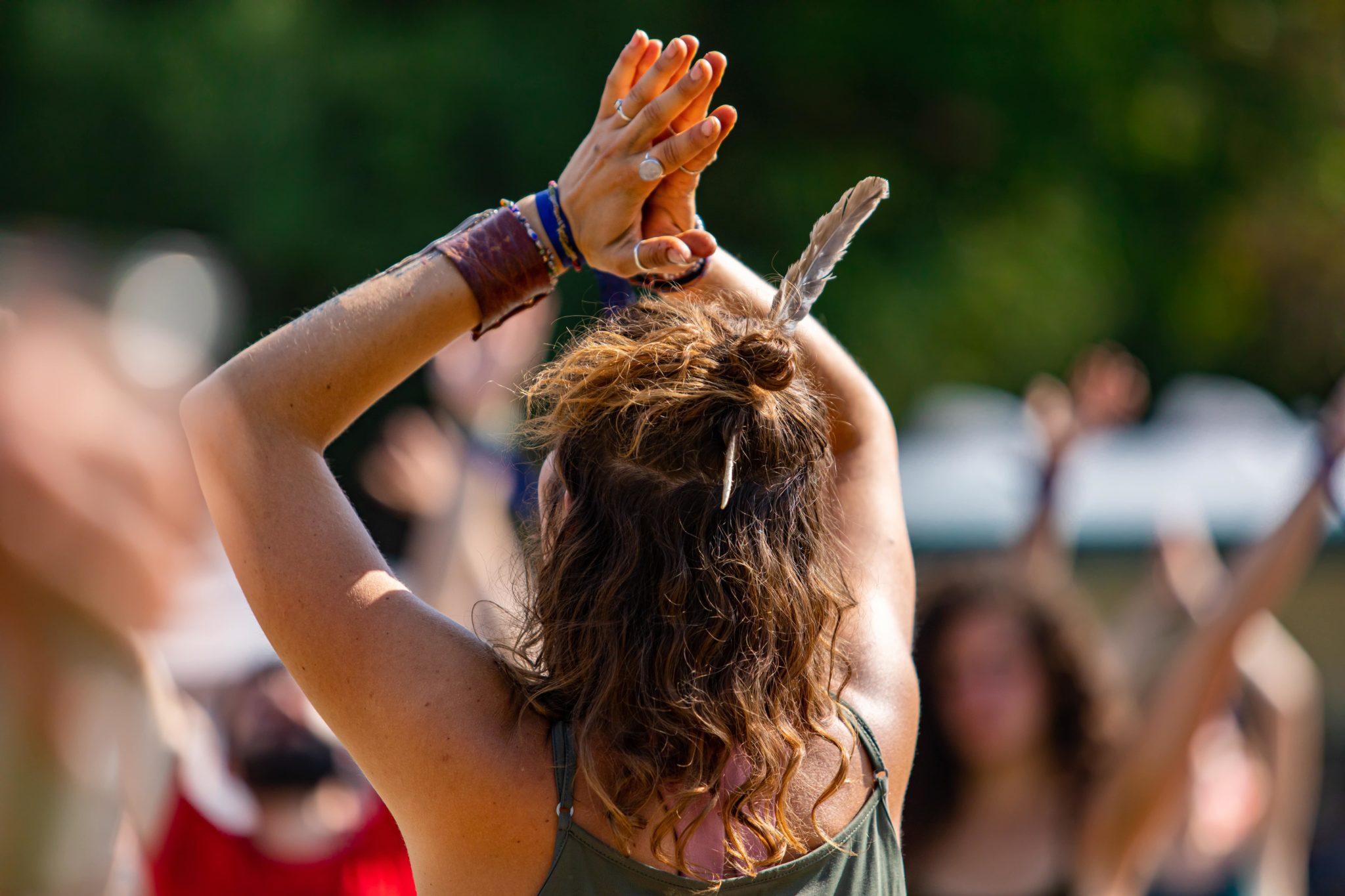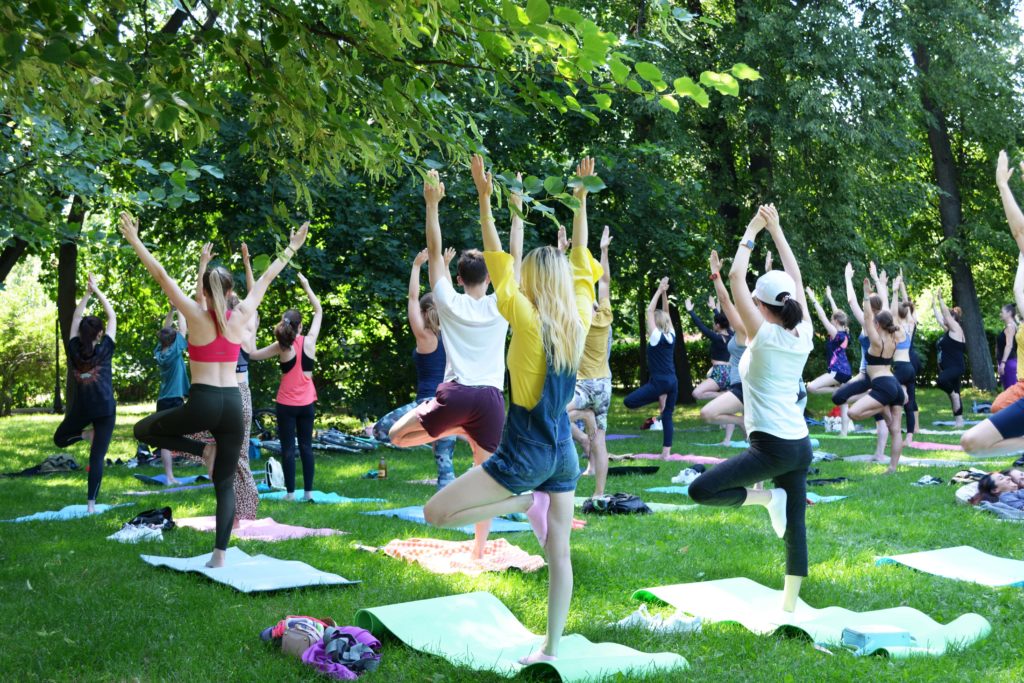
Are you a yoga enthusiast who is trying to decide between attending a yoga festival or traditional yoga classes? Each of them provides distinct experiences and benefits that are specific to them. Yoga has become increasingly popular in recent years, and there are more options available to practitioners than ever before. While traditional yoga classes have been around for decades, yoga festivals have become a trendy alternative for those seeking a more immersive experience. It can be challenging to determine the most suitable option among a plethora of choices. In this article, we’ll break down the differences between yoga festivals and traditional yoga classes to help you make an informed decision. After that, you can choose either yoga festivals or traditional yoga classes. Let’s get started.
Yoga Festivals Or Traditional Yoga Classes | Choose the Best
When it comes to choosing between yoga festivals and traditional yoga classes, it ultimately depends on your personal preferences and goals. Below are a few factors to take into account while making your decision:
- Size of the Class: One of the biggest differences between yoga festivals and traditional yoga classes is the size of the class. Traditional yoga classes are typically smaller and more intimate, with only a handful of students in each session. This allows for more personalized attention from the instructor and a deeper focus on individual alignment and technique. Yoga festivals, on the other hand, can have hundreds or even thousands of participants. While this may seem overwhelming, it can be a great opportunity to connect with a larger community of like-minded individuals and to learn from a variety of teachers and styles.
- Location and Environment: Another factor to consider is the location and environment of the class. Traditional yoga classes are often held in studios or gyms, with a consistent atmosphere and level of comfort. Yoga festivals, on the other hand, can take place in a variety of settings, from outdoor parks to exotic retreat centers. While this can add an element of excitement and adventure, it can also pose challenges in terms of weather, bugs, and other outdoor factors.
- Cost: Cost is another consideration when deciding between yoga festivals and traditional yoga classes. Traditional yoga classes typically have a set fee per session or monthly membership fee. Yoga festivals, on the other hand, can vary widely in cost depending on the location, length of the event, and types of classes offered. While some festivals may be free or low-cost, others can be quite expensive, requiring travel and accommodations in addition to the cost of the event itself.
- Variety and Diversity: Yoga festivals offer a wider variety of classes and styles than traditional yoga classes. At a festival, you may have the opportunity to explore different types of yoga, such as AcroYoga, Kundalini, or aerial yoga, and to learn from a diverse group of teachers from all over the world. Traditional yoga classes, on the other hand, typically offer a more limited range of styles and may be taught by the same instructor each session.
- Intensity of Practice: The intensity of the yoga practice is another important factor to consider. Traditional yoga classes typically offer a more focused and intense practice, with a greater emphasis on individual progress and development. Yoga festivals, on the other hand, may offer a more relaxed and playful atmosphere, with a focus on community and connection.
- Personal Goals: Ultimately, the decision between yoga festivals and traditional yoga classes should be based on your personal goals and preferences. If you’re looking to deepen your practice and focus on individual progress, a traditional yoga class may be the better option. If you’re looking for a more social experience and an opportunity to try new things, a yoga festival may be the way to go.
Yoga Festivals: Pros and Cons
Yoga festivals offer a unique opportunity to connect with a larger yoga community and to explore new styles and teachers. Here are some pros and cons to consider when deciding whether a yoga festival is right for you:
Pros
- Variety: Yoga festivals offer a wider range of styles and teachers than traditional yoga classes, allowing you to explore new practices and techniques.
- Community: A yoga festival can be a great way to connect with a larger community of like-minded individuals, building friendships and relationships that can last beyond the event itself.
- Adventure: Yoga festivals often take place in beautiful and exotic locations, providing a unique and exciting backdrop for your practice.
Cons
- Cost: Yoga festivals can be expensive, requiring travel and accommodations in addition to the cost of the event itself.
- Crowds: With so many participants, it can be challenging to find personal space and to connect with individual teachers.
- Outdoor Challenges: Yoga festivals held in outdoor locations may be subject to weather, bugs, and other environmental factors that can affect your practice.
Traditional Yoga Classes: Pros and Cons
Traditional yoga classes offer a more focused and personalized experience, with a greater emphasis on individual progress and development. Here are some pros and cons to consider when deciding whether a yoga festival or traditional yoga classes are right for you:
Pros
- Personalized Attention: With smaller class sizes, traditional yoga classes offer more personalized attention from the instructor, allowing for a deeper focus on individual alignment and technique.
- Consistency: Traditional yoga classes are often held in the same location with the same instructor, providing a consistent atmosphere and level of comfort.
- Affordability: Traditional yoga classes are typically more affordable than yoga festivals, with a set fee per session or monthly membership fee.
Cons
- Limited Variety: Traditional yoga classes may offer a more limited range of styles and techniques than yoga festivals.
- Lack of Community: Traditional yoga classes may not provide the same sense of community and connection as a yoga festival.
- Monotony: With the same instructor and routine each session, traditional yoga classes may become monotonous or repetitive over time.
Frequently Asked Questions (FAQs)
Can I still practice traditional yoga if I attend a yoga festival?
Ans: Absolutely. Many yoga festivals offer traditional yoga classes alongside more specialized practices.
Are yoga festivals safe during the COVID-19 pandemic?
Ans: It depends on the specific event and location. Many yoga festivals have adapted to COVID-19 safety protocols, such as social distancing, mask mandates, and reduced class sizes. However, it’s important to research the safety measures of each festival before attending.
Can I meet new people at traditional yoga classes?
Ans: While traditional yoga classes may not offer the same large-scale community as a yoga festival, they can still be a great way to meet new people and build relationships with like-minded individuals.
Can I try new yoga styles at traditional yoga classes?
Ans: It depends on the specific studio and instructor. Some traditional yoga classes may offer a range of styles, while others may focus on a particular practice or technique.
Can I practice yoga at home instead of attending a festival or class?
Ans: Absolutely. Many people choose to practice yoga at home, using online classes or instructional videos to guide their practice.



